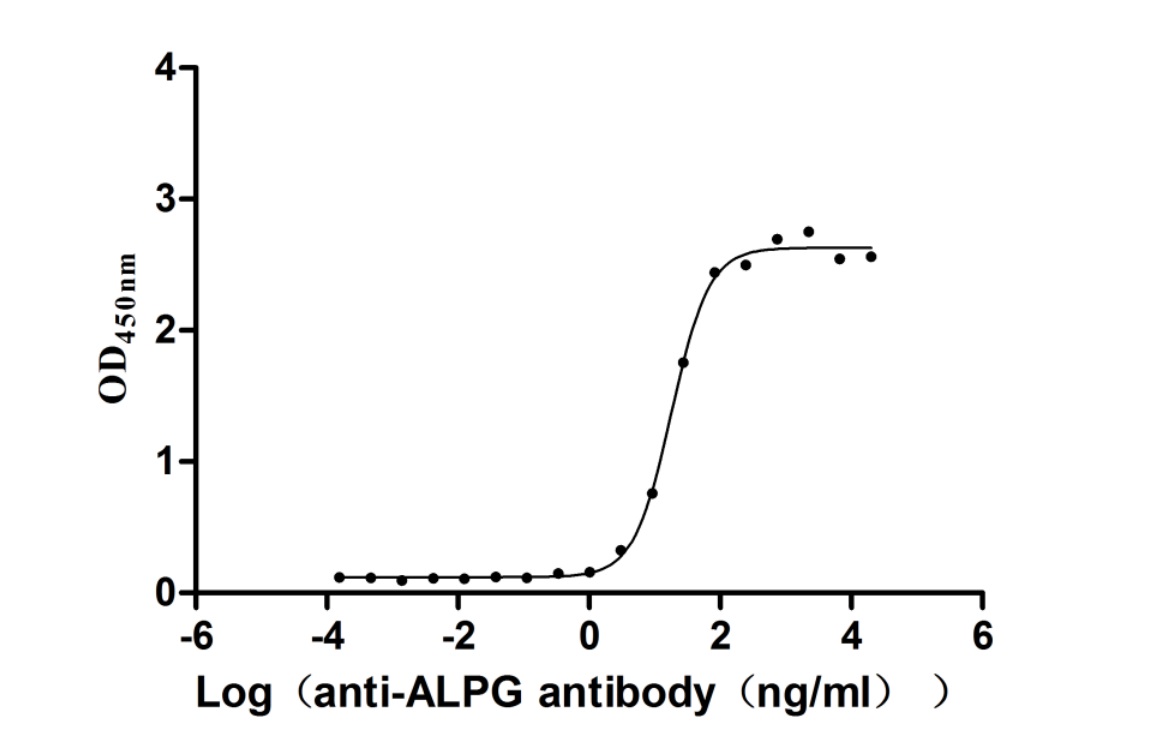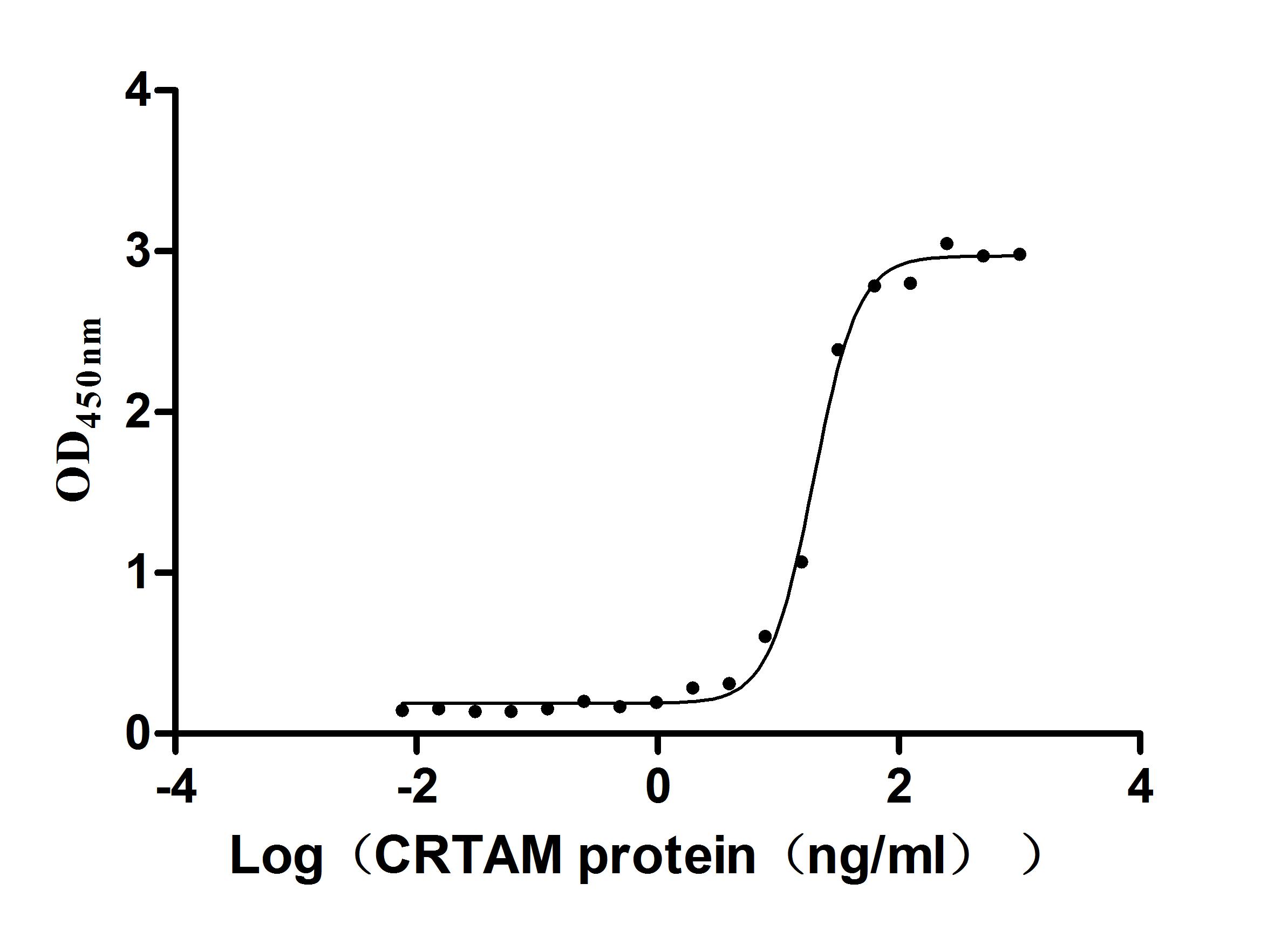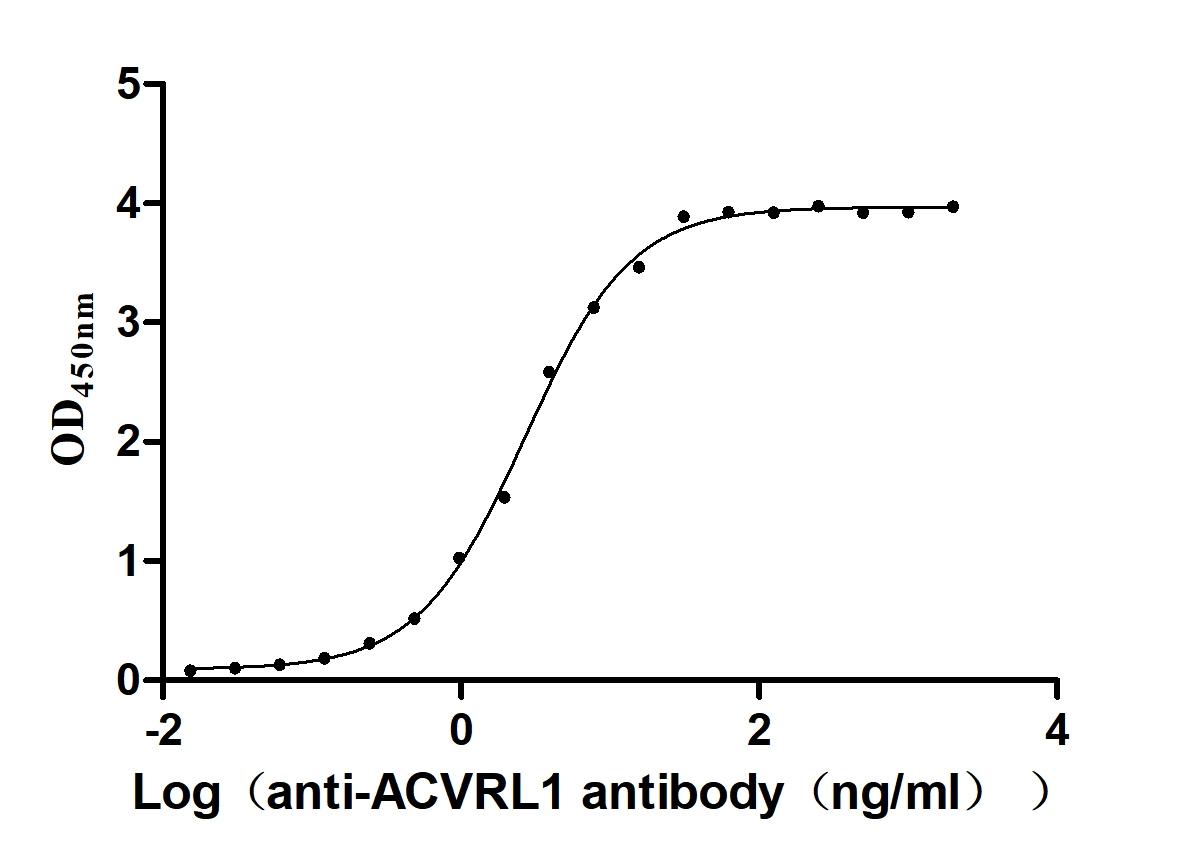Recombinant Rotavirus A Outer capsid glycoprotein VP7
In Stock-
中文名称:Recombinant Rotavirus A Outer capsid glycoprotein VP7
-
货号:CSB-EP420195RIU
-
规格:¥1836
-
图片:
-
其他:
产品详情
-
纯度:Greater than 85% as determined by SDS-PAGE.
-
基因名:N/A
-
Uniprot No.:
-
别名:; Outer capsid glycoprotein VP7; Fragment
-
种属:Rotavirus A (strain RVA/Cow/Canada/C486/1977/G6P6[1]) (RV-A)
-
蛋白长度:Full Length of Mature Protein
-
来源:E.coli
-
分子量:36.0 kDa
-
表达区域:34-309aa
-
氨基酸序列QNYGVNLPITGSMDTAYANSTQSEPFLTSTLCLYYPVEASNEIADTEWKDTLSQLFLTKGWPTGSVYLKEYADIAAFSVEPQLYCDYNLVLMKYDSTQELDMSELADLILNEWLCNPMDITLYYYQQTDEANKWISMGSSCTVKVCPLNTQTLGIGCLITNPDTFETVATTEKLVITDVVDGVSHKLNVTTATCTIRNCKKLGPKENVAVIQVGGANILDITADPTTTPQTERMMAIIWKKWWQVVYPVVDYVNQIIQTMSKRSRSLNSSAFYYRV
Note: The complete sequence including tag sequence, target protein sequence and linker sequence could be provided upon request. -
蛋白标签:N-terminal 10xHis-tagged and C-terminal Myc-tagged
-
产品提供形式:Liquid or Lyophilized powder
Note: We will preferentially ship the format that we have in stock, however, if you have any special requirement for the format, please remark your requirement when placing the order, we will prepare according to your demand. -
缓冲液:Tris-based buffer,50% glycerol
-
储存条件:Store at -20°C/-80°C upon receipt, aliquoting is necessary for mutiple use. Avoid repeated freeze-thaw cycles.
-
保质期:The shelf life is related to many factors, storage state, buffer ingredients, storage temperature and the stability of the protein itself.
Generally, the shelf life of liquid form is 6 months at -20°C/-80°C. The shelf life of lyophilized form is 12 months at -20°C/-80°C. -
货期:3-7 business days
-
注意事项:Repeated freezing and thawing is not recommended. Store working aliquots at 4°C for up to one week.
-
Datasheet & COA:Please contact us to get it.
相关产品
靶点详情
-
功能:Calcium-binding protein that interacts with rotavirus cell receptors once the initial attachment by VP4 has been achieved. Rotavirus attachment and entry into the host cell probably involves multiple sequential contacts between the outer capsid proteins VP4 and VP7, and the cell receptors. Following entry into the host cell, low intracellular or intravesicular Ca(2+) concentration probably causes the calcium-stabilized VP7 trimers to dissociate from the virion. This step is probably necessary for the membrane-disrupting entry step and the release of VP4, which is locked onto the virion by VP7.
-
亚细胞定位:Virion. Host endoplasmic reticulum lumen.
-
蛋白家族:Rotavirus VP7 family
Most popular with customers
-
Recombinant Human Tumor necrosis factor receptor superfamily member 18 (TNFRSF18), partial (Active)
Express system: Mammalian cell
Species: Homo sapiens (Human)
-
Recombinant Human HLA class II histocompatibility antigen gamma chain (CD74), partial (Active)
Express system: Mammalian cell
Species: Homo sapiens (Human)
-
Recombinant Human Lymphocyte antigen 6 complex locus protein G6d (LY6G6D) (Active)
Express system: Yeast
Species: Homo sapiens (Human)
-
Recombinant Human Dickkopf-related protein 1 (DKK1) (Active)
Express system: Mammalian cell
Species: Homo sapiens (Human)
-
Recombinant Human Alkaline phosphatase, germ cell type (ALPG) (Active)
Express system: Mammalian cell
Species: Homo sapiens (Human)
-
Recombinant Human Cell adhesion molecule 1 (CADM1), partial (Active)
Express system: Mammalian cell
Species: Homo sapiens (Human)
-
Recombinant Human Serine/threonine-protein kinase receptor R3 (ACVRL1), partial (Active)
Express system: Baculovirus
Species: Homo sapiens (Human)
-
Recombinant Human Carcinoembryonic antigen-related cell adhesion molecule 8(CEACAM8) (Active)
Express system: Mammalian cell
Species: Homo sapiens (Human)



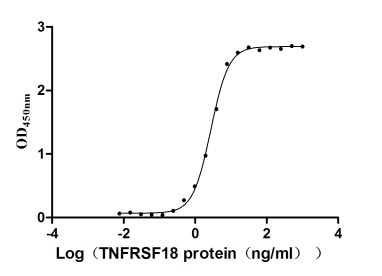
-AC1.jpg)
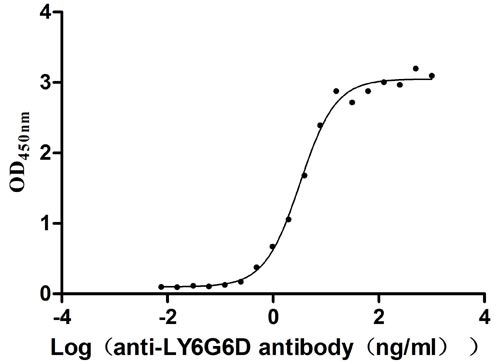
-AC1.jpg)
